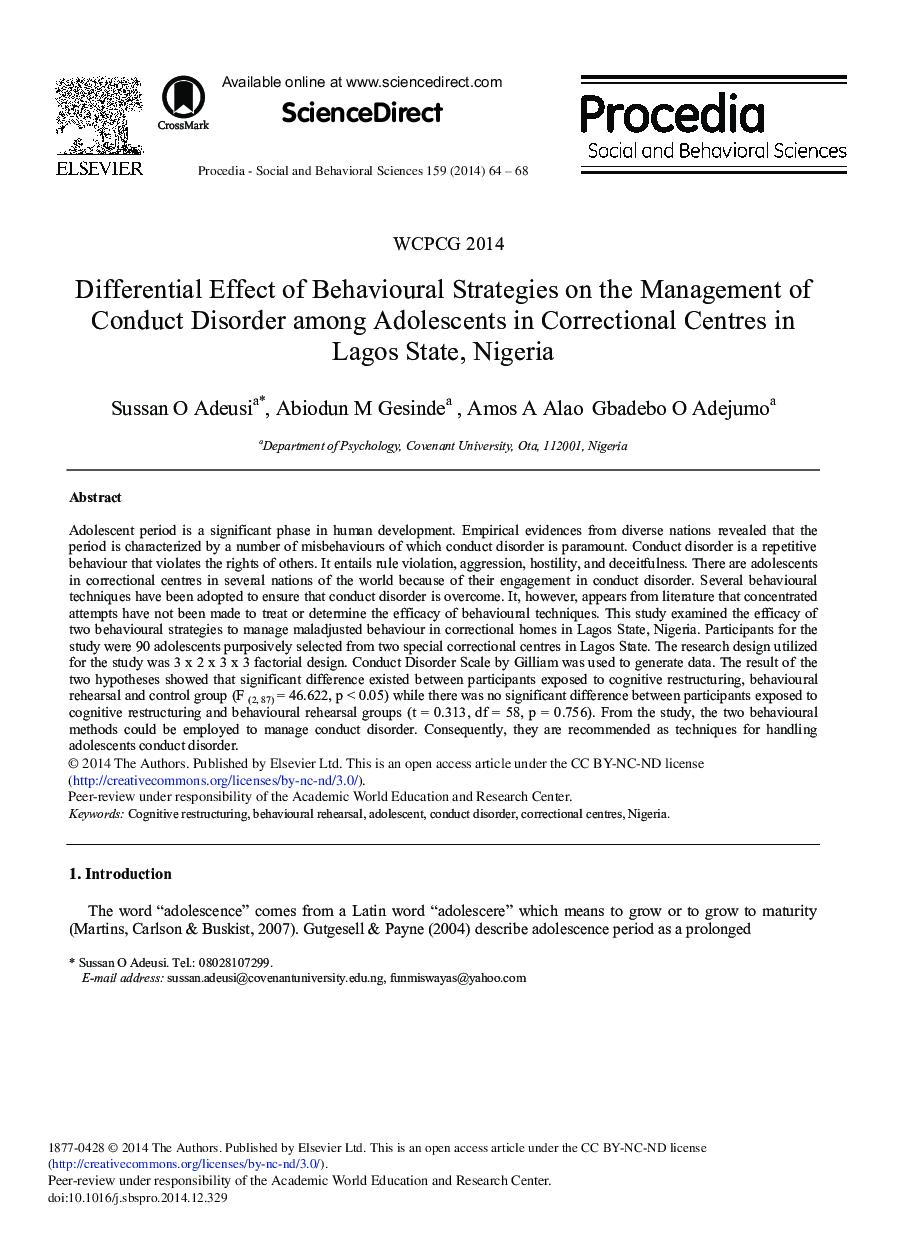| Article ID | Journal | Published Year | Pages | File Type |
|---|---|---|---|---|
| 1112360 | Procedia - Social and Behavioral Sciences | 2014 | 5 Pages |
Adolescent period is a significant phase in human development. Empirical evidences from diverse nations revealed that the period is characterized by a number of misbehaviours of which conduct disorder is paramount. Conduct disorder is a repetitive behaviour that violates the rights of others. It entails rule violation, aggression, hostility, and deceitfulness. There are adolescents in correctional centres in several nations of the world because of their engagement in conduct disorder. Several behavioural techniques have been adopted to ensure that conduct disorder is overcome. It, however, appears from literature that concentrated attempts have not been made to treat or determine the efficacy of behavioural techniques. This study examined the efficacy of two behavioural strategies to manage maladjusted behaviour in correctional homes in Lagos State, Nigeria. Participants for the study were 90 adolescents purposively selected from two special correctional centres in Lagos State. The research design utilized for the study was 3 x 2 x 3 x 3 factorial design. Conduct Disorder Scale by Gilliam was used to generate data. The result of the two hypotheses showed that significant difference existed between participants exposed to cognitive restructuring, behavioural rehearsal and control group (F (2, 87) = 46.622, p < 0.05) while there was no significant difference between participants exposed to cognitive restructuring and behavioural rehearsal groups (t = 0.313, df = 58, p = 0.756). From the study, the two behavioural methods could be employed to manage conduct disorder. Consequently, they are recommended as techniques for handling adolescents conduct disorder.
